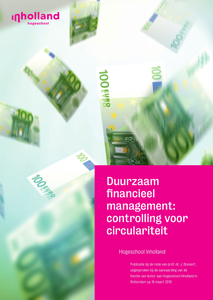Contrary to the practical application of revenue management (RM), its theoretical definition has remained virtually unchanged. Today's data-driven approach to RM forms an integral part of management and clearly contributes to the financial performance of hotels. Its growing importance and the shifting balance between art and science in RM decision making is only partially supported by changes to its underlying process. Additional tasks place new demands on the required competences and fight for priority with the core responsibility of optimising (overall) revenue potential. This article provides a brief historic overview of hotel RM and outlines and discusses its current state as well as future challenges.
LINK
Wanneer een beslisarchitectuur is geformuleerd, dan is daarna vaak de vraag hoe iedere individueel gespecificeerde beslissing uitgewerkt dient te worden. Gaan we voor een beslissing elk van de onderliggende bedrijfsregels volledig specificeren? Dient er een predictive analytics engine te komen of is het beter om een mens de beslissing te laten nemen?
LINK
In deze rede willen we helder krijgen welke ontwikkelingen in het bedrijfsleven van invloed zijn op ondernemingen en het financieel management van deze ondernemingen. Met name het streven naar een circulaire economie wordt als een ontwikkeling van betekenis gezien.
DOCUMENT

Research, advisory companies, consultants and system integrators all predict that a lot of money will be earned with decision management (business rules, algorithms and analytics). But how can you actually make money with decision management or in other words: Which business models are exactly available? In this article, we present seven business models for decision management.
LINK
It is often said that European companies must stop trying to compete on price and concentrate more on developing products and services that offer customers and users a high level of added value. Design is an indispensable tool for such development and innovation, and this is why the findings of this survey are cause for concern. It is not enough to encourage companies to use design; they must also develop skill in managing design. It seems risky to assume that they will eventually find their own way to design and its effective management; as an economic necessity, attention and commitment will be required from those who set business policy. The survey results suggest that improved awareness of design and the management of design will drive increased business performance within SMEs. "is would likely also trigger increased demand for effective support services to develop design management skills, and thus more jobs. One of the study’s findings is the positive correlation between increasing design management capability and positive growth. At the same time, however, cost factors are widely cited as the main obstacle standing in the way of companies implementing design management. What this indicates is that design should cease to be seen as a cost, and instead should be considered as an investment in the future. One way to improve the perception of the cost factor is to raise awareness of design’s benefits. To do this, however, it is critical to find ways to measure and therefore value design effectiveness and, once it has been implemented, to measure its success in a way that can be understood by managers. Knowledge factors also present a considerable obstacle, and as such education is a second critical success factor. "e curricula of European design courses tend to dedicate relatively little time to the development of management skills or the understanding of the business implications of design decisions. And although the attention paid to ideas such as design thinking does show some movement in the world of management, things seem to be happening rather slowly. In management courses, there is still relatively little structural focus on design, and for experienced designersóeven those with sufficient management skillsótraining in design management is rarely available. Indeed, the relative lack of training opportunities for design management begs the question: Are we making enough progress with design management as a professional field? "e gap between design management “winners” and “losers” seems rather large, and the group of companies that is left behind is comparatively too big. Progress has and is being made within the profession of design management; however, to sustain this progress, and even to turn the situation around, will require the collaborative efforts of a broader group of stakeholdersónamely, the design sector, the training and education sector, trade associations, promoters of design management honors such as the DME Award, and government bodies themselves.
DOCUMENT
